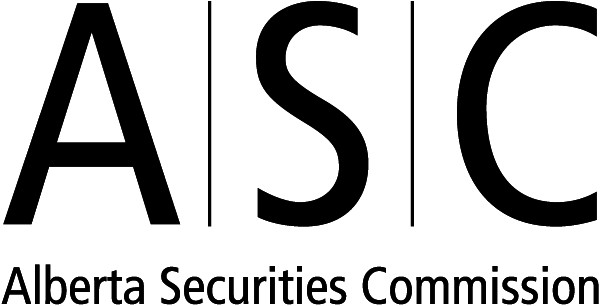Co-operatives
Disclaimer: The following information is intended only as general introductory information to address some common questions. It is not intended to be and must not be relied on as legal advice. Please refer to the specific provisions of Alberta securities laws. We encourage you to seek legal advice from legal counsel familiar with Alberta securities laws.
Raising capital for Alberta co-operatives
One way Alberta co-operatives can raise money is to issue investment shares. There are rules set out in the Securities Act (Alberta) and its regulations that co-operatives must follow to gain access to capital.
Before issuing shares, a comprehensive document called a prospectus must be prepared and filed with the Alberta Securities Commission (ASC). A prospectus contains all material information about the organization and its shares. It can help investors determine whether the investment is right for them. However, there are a number of “exemptions” from the prospectus requirement that allow an organization to raise money at much less cost.
- A co-operative may use a combination of exemptions when raising capital, so long as the co-operative meets the specific requirement of each exemption it uses.
- The responsibility for compliance with Alberta securities law rests with the co-operative and its directors and officers.
- Professionals, such as lawyers and accountants, can help a co-operative meet its securities law regulatory obligations.
Common prospectus exemptions for Alberta co-operatives
Following are a number of prospectus exemptions that Alberta co-operatives can consider to raise funds. Additional information on raising capital using prospectus exemptions is available on the Small Business section of our website.
A co-operative can issue investment shares to individuals who have been a member of the co-operative for at least 12 months, with a maximum annual per person limit of:
- $10,000 for co-operatives with 100 members or less.
- $5,000 for co-operatives with more than 100 members.
There are no disclosure documents or filings required to use the co-operative exemption.
A co-operative that has less than 50 shareholders (excluding employees) and has restrictions on transfer in its articles or bylaws, or in a shareholders’ agreement, may use the private issuer exemption. In this situation, current and prospective shareholders of the co-operative cannot be members of the public, they must be:
- Directors, officers or employees.
- Family members, close personal friends or business associates of directors or officers.
- Accredited investors.1
There are no disclosure documents or filings required for use of the private issuer exemption.
1 For an individual, an accredited investor is someone (alone or with a spouse) who has net financial assets exceeding $1 million, or whose net income before taxes exceeded $200,000 in each of the two most recent years (or $300,000 with a spouse) and reasonably expects to exceed that income level in the current year.
A co-operative can raise up to $5 million from the public over its lifetime using the small business financing exemption.
- If the annual amount raised is $1.5 million or less, the co-operative does not need to provide financial statements to purchasers.
- If the co-operative would like to raise more than $1.5 million annually, the co-operative must provide purchasers with financial statements that have been audited or, alternatively, “reviewed” in accordance with Part II of the CPA Canada Handbook.
Without financial statements, the maximum annual amount that an investor could invest is:
- $2,500; or
- $10,000, if the purchaser has an annual income before taxes exceeding $75,000 (or $125,000 with a spouse).
With financial statements, the maximum annual amount that an investor could invest is:
- $5,000; or
- $20,000, if the purchaser has an annual income before taxes exceeding $75,000 (or $125,000 with a spouse).
If a person who is registered as an exempt market dealer or an investment dealer provides advice that the investment is “suitable” for the purchaser, that purchaser may invest at the higher limits referenced above.
There is a required disclosure document, a risk acknowledgement, an undertaking (if financial statements are provided) and a filing due within 30 days for use of the small business financing exemption.
A co-operative can raise an unlimited amount of money from the public using the offering memorandum exemption. Audited financial statements must be provided to prospective purchasers initially and annually thereafter for as long as the business is operating.
The maximum annual per person limit is:
- $10,000;
- $30,000, if the purchaser has net assets exceeding $400,000 or annual income before taxes exceeding $75,000 (or $125,000 with a spouse); or
- $100,000, if a person who is registered as an exempt market dealer or an investment dealer provides advice that the investment is “suitable” for the purchaser.
There is a required disclosure document, a risk acknowledgement, and a filing due within 10 days for use of the offering memorandum exemption. If the investment relates to real estate, specific additional disclosure is required to assist the purchaser in understanding the investment.
Some other exemptions that a co-operative may use include:
- Accredited investor exemption – allows co-operatives to raise money (without investment limits) from investors who meet annual income or net worth levels.
- Friends, family and business associates exemption – allows co-operatives to raise money (without investment limits) from investors who are members of the immediate family, close friends and close business associates of a director or officer.
There is no required disclosure for any of the above exemptions, however a risk acknowledgement is required for the accredited investor exemption and a filing is due within 10 days for all of the above exemptions.
Voluntary disclosure
Even when an exemption may not require specific disclosure, a co-operative can choose to provide potential shareholders with written materials about the investment. The co-operative should ensure that information provided to potential shareholders is not misleading and that the disclosure is fair and balanced, noting that it can be misleading to omit information. The prohibition on misleading statements applies to both written and oral information. Disclosure of financial projections and forward-looking information is at risk of being misleading if it is not reasonable and is not accompanied by the related assumptions and risks.
Investor expectations
Investors purchasing shares of private organizations typically seek out information enabling them to make an informed investment decision. For example, a potential shareholder may ask for:
- Full legal names of directors and officers so that background checks can be conducted.
- Financial information and operational history of the business.
- The purpose for which the money is being raised and what minimum amount of money is sufficient to achieve that purpose.
- A business plan that includes a timeline to profitability.
Co-operatives raising money should be prepared to respond to questions from potential investors in clear and plain language.
For more information, please visit contact innovation@asc.ca.
Are you an investor looking for more information?
Visit the Considerations when Investing for more information about saving and investment basics, and investing in the private or exempt market.
You can also check out CheckFirst.ca for free and unbiased information and tools for new and experienced investors. There you’ll find information about how to invest wisely and identify investment risks, common scams, and ways to protect yourself and those you care for. We also offer in-person and online programs to help you learn more about investing and how to spot and report fraud.






